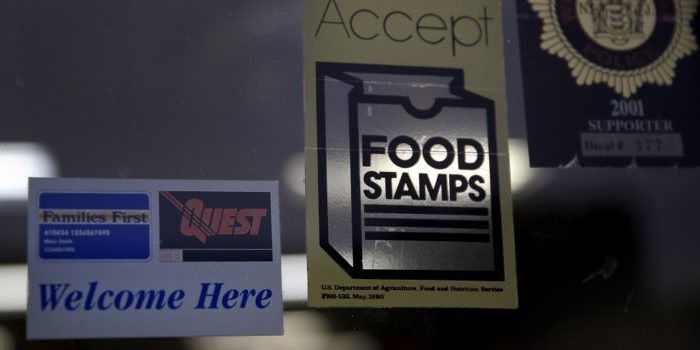(Christen Smith, The Center Square) Pennsylvania investigators charged 103 welfare recipients with fraud over the summer, according to an announcement Wednesday from the Office of Inspector General.
All but one of the beneficiaries risk felony convictions, which carry possible maximum penalties of seven years in prison and $15,000 fines. The remaining case is filed as a misdemeanor charge. For deception involving food stamps, cash assistance and subsidized daycare programs, defendants will be disqualified from receiving benefits for the amount of time they defrauded the state.
“Each of these charges is a reminder of our responsibility to protect the integrity of the commonwealth’s resources,” said State Inspector General Lucas M. Miller. “We remain vigilant in our efforts to ensure that public assistance benefits are used as intended – to support those who are truly in need. I am proud that the funds recovered will be returned to help individuals across Pennsylvania.”
The investigation revealed that in July and August, the accused “either trafficked their public assistance or misrepresented their household circumstances,” costing taxpayers more than $680,000. The office said barring the recipients from future benefits will recoup the money lost.
Department of Human Services Secretary Val Arkoosh in a statement said the agency prioritizes protecting public assistance programs, “which are a lifeline for people in difficult situations.”
“DHS works diligently to ensure the benefits we administer remain available to those who deserve them, and we are proud to partner with OSIG every day to refer suspected public assistance fraud and maintain the responsible stewardship of these essential programs,” she said.
The cases illustrate legislators’ concerns about the abuse of safety-net programs and the department’s need to prioritize reforms that would better safeguard public money.
It’s not an isolated incident, either. Data taken from the OSIG’s 2017-18 Fiscal Year Annual Report shows the agency saved Pennsylvania more than $75 million in benefits that would have been incorrectly paid. It also projected a cost-benefit of nearly $12 for every $1 spent on investigative activities.
During a 2023 committee hearing, the Foundation for Government Accountability said weakness in program design diverts benefits away from those who truly need them and into the hands of those living above the income limits – even millionaires.
Back in 2019 – when Gov. Josh Shapiro was serving as attorney general – he supported legislative reforms to crack down on Medicare fraud, which he estimated cost Pennsylvania $3 billion per year.
Legislators warn that it’s an expensive problem that only worsens as the list of beneficiaries grows longer every year.
In 2000, Pennsylvania had 760,000 residents receiving food stamps. Now, almost 2 million receive them. Growth in Medicaid has been similar: The state spent $10.7 billion on 1.3 million residents in 2000, but now, it spends almost $47 billion to provide Medicaid benefits to 3.3 million residents.
Welfare expansion has outpaced population growth: Pennsylvania has only gained 700,000 residents since 2000. The state budget is now dominated by safety net spending that runs through the Department of Human Services.
Though human services eat up a significant chunk of all state budgets, the commonwealth stands out: Pennsylvania’s Medicaid expenditures as a percentage of its budget is the highest in the nation, according to an analysis from the Foundation for Government Accountability.
In August, the state renewed the work requirement waiver for food stamps through Aug. 31, 2025. State data shows nearly 200,000 residents of the more than 2 million enrolled in the Supplemental Nutrition Assistance Program, or SNAP, fall into this category.
Without a waiver, able-bodied adults would have to work at least 20 hours a week or spend the equivalent amount of time in a workforce development program. Until the requirement is met, benefits would be limited to three months over a three-year period.
Thirty-nine House Republicans, in a letter sent to Arkoosh, said waiving the work requirement prolongs government dependency and worsens the state’s labor shortage.
Supporters beg to differ, saying many programs go beyond food stamps. In an analysis from the Urban Institute, able-bodied adults are considered a “challenging” group to serve. These beneficiaries are more likely to be homeless or live with a mental or physical condition that doesn’t qualify as a disability, even though it makes working unrealistic.

